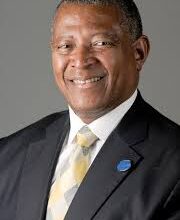Celebrating a miracle
Published 11:02 pm Friday, December 7, 2012
One of the most well known holidays on the Jewish calendar is Hanukkah. Perhaps this is because this holiday falls so close to Christmas and many practicing Jews have developed the holiday into a time to spend with family, exchange gifts and celebrate.
The Jewish community in Selma has dwindled in recent years, but their history —and their presence today — remain intrenched in Selma’s history and cultural foundation.
The Temple Mishkan Israel has not held services specifically for Hanukkah in recent years, but long-time member of the Mishkan Israel congregation, Hannah Berger, still remembers Hanukkah celebrations at the temple.
“It was just a very joyous warm feeling to be with a group in the social hall at the temple and to sing and to play the games and to eat,” Berger said. “It was a warm and happy occasion.”
Hanukkah is a Jewish holiday that celebrates a miracle that occurred while the Jewish people reclaimed their temple in Israel. It is an eight-day festival that will begin on Saturday, Dec. 8 and end on Sunday, Dec. 16. It is also commonly referred to as the Festival of Lights, due to its origins and is sometimes spelled Chanukah.
Under Alexander the Great’s rule over Syria, Egypt and Palestine, many Jews assimilated into the Hellenistic culture of that time and blended in with the Greeks. A century later Antiochus IV began to oppress the Jews, even going so far as to massacre their people and defile their temples and altars.
Several small groups of Jews rose up against him and successfully reclaimed their temple.
The miracle occurred when it was time to rededicate the temple back to God and there was only a little bit of oil left that had not been tampered with. Miraculously only one day’s worth of oil burned for eight days straight, thus the Festival of Lights was declared.
Berger said the traditional foods of Hanukkah surround the story of the oil.
“After a Friday night service [in the temple] we would have a Hanukkah party and the food that was the center of the party was the potato pancakes, or the latkes,” Berger said. “The reason for that, is oil is the main ingredient for Hanukkah cooking based on the legend that they found enough oil for one day to burn in the temple and it miraculously lasted for eight days.”
She said oil may not be the healthiest symbol to incorporate into foods but Jews all over the country are starting to get creative with the latkes.
“There is a tradition nationally of not just using potatoes anymore but trying to go with a little healthier option,” she said. “You can make zucchini pancakes and oven fry them rather than frying them in the pan.”
Berger remembers as a child eating her potato latkes at the temple in Selma, served with applesauce and sour cream. Then afterwards the children would play dreidels and try to win pennies, chocolate and other prizes.
“Even when we had no children in the congregation, we still tried to keep up these traditions,” Berger said.
The most important and symbolic tradition surrounding Hanukkah is the lighting of the the Menorah.
The members of Temple Mishkan Israel will all light their Menorahs in their homes as they once did in the temple together.




